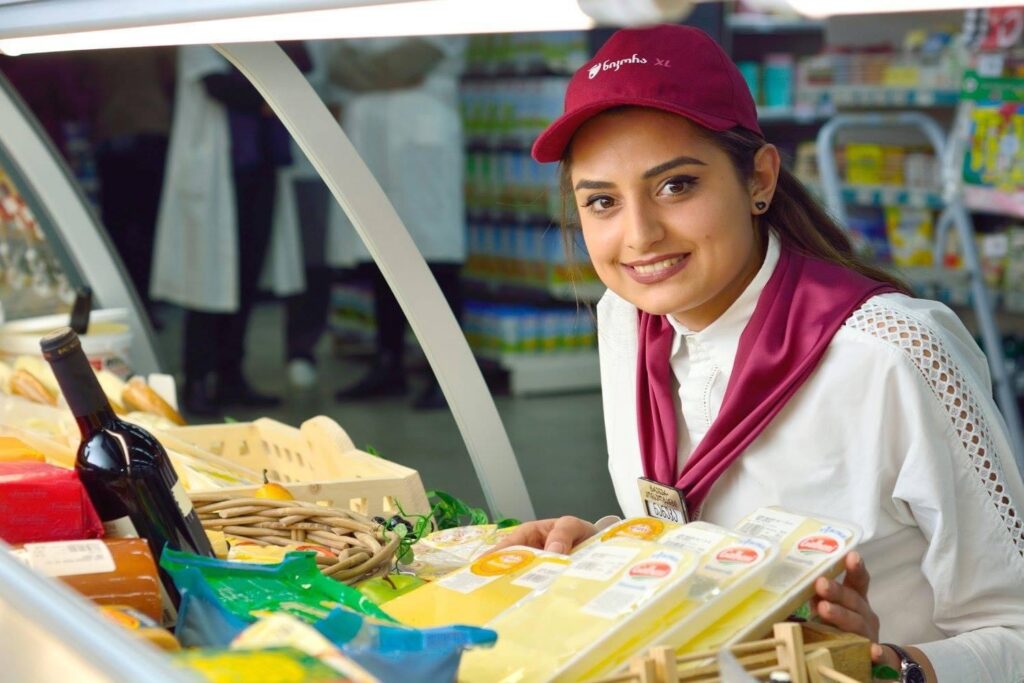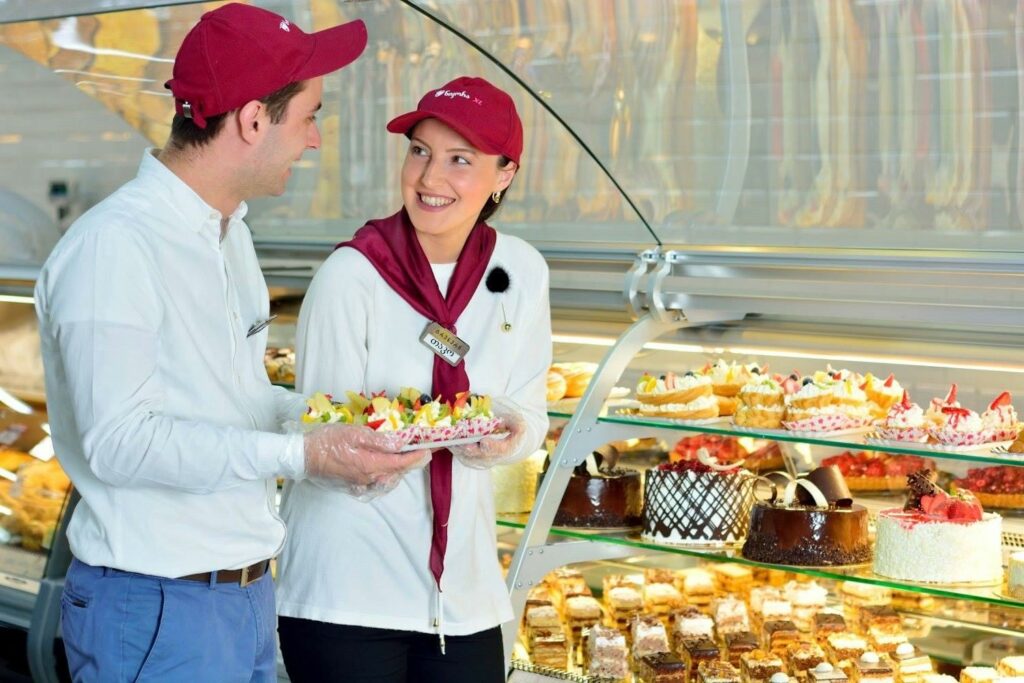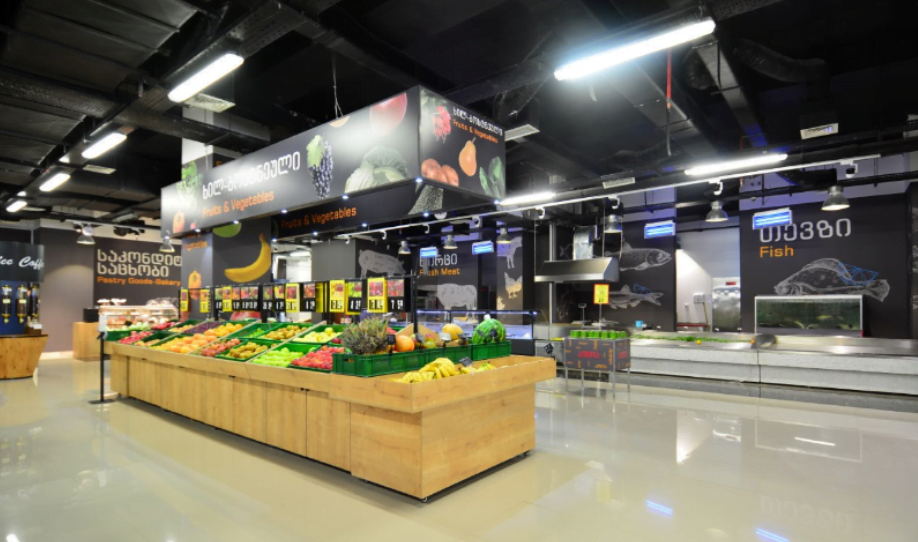The Nikora supermarket chain (Nikora Trade CJSC) is the largest chain in Georgia in terms of the number of grocery stores. The company has been operating on the market since 2000. Over the past 10 years, its number of stores has grown fivefold and currently has 330 outlets both in the capital city Tbilisi as well as in the regions. The company operates in various formats under the brands Nikora Supermarket, Nikora XL (largest format), and Libre (discounter format). The company owns warehouses in Tbilisi, eastern and western Georgia, and has its own distribution fleet. Nikora Trade is part of the Nikora holding, which is a major player in the Georgian food market. It produces meat, fish, dairy and bakery products, and other food products as well as imports.
EastFruit talked with David Urushadze, the director of the company, about results from the past year and the company’s plans for the future.

– How did the pandemic affect the sector in general and the Nikora network in particular?
The restrictions associated with COVID-19 had a rather negative impact on the Georgian economy. The tourism sector suffered the most and, as a result, all the entities that were directly or indirectly associated with it. Thus, more than 20% of the economy were people without an income and this is not the end of the pandemic’s impact since quarantine restrictions are in force in the country and many are still unable to work as usual.
Grocery retail is among the few sectors that continue to work, but new regulations pose big problems for us both directly and indirectly because they affect the growth of costs. For the safety of our staff and customers, we invested in personal protective equipment and we had to organize the transportation of employees to their workplaces due to the cancellation of public transport. The economic crisis will indirectly affect business with a decrease in the income of the population, and the cancellation of regular transport also greatly hinders sales. As a result of all this, the sales figure at the same outlet compared to last year (shop-to-shop) decreased by 5%, which is very noticeable for a dynamically growing company like ours.
Despite the difficulties, we can proudly declare that during 2020 we did not cut one workplace and, on the contrary, opened 58 new stores, which employ about 700 people. Of course, we must pay tribute to the state anti-crisis program with the help of which we received tax incentives and even in a very difficult situation we were able to retain our employees. We paid them a salary even when they were unable to go to work.
– The chain has several trade formats from kiosks, which were inherited from the previously acquired Nugeshi chain, to large formats of 1600 square metres. Which ones are the priority?
We mainly work in the convenience store format. Over the past two years, we have been actively developing our product range through our own brand and imports. We try to offer our customers an exclusive assortment that can be purchased only at Nikora. A wide product line requires a large format so all new stores have, on average, 1.5 times more area. We are moving towards enlargement, but we will not leave small formats.
We are also actively developing the discounter format under the Libre brand. Even though the project is still very young, it is very popular with buyers. Almost one third of all our stores operate in this format and we intend to develop it further. In all formats, except for kiosks, there is a fruit and vegetable section.
– How have shopping preferences changed in 2020?
Georgian modern retail is growing very quickly by an average of 28-30% per year gradually replacing traditional retail of small non-brand stores. This trend is relevant not only in large cities, but also in regions and villages. Despite the economic crisis, the number of buyers from the chains is growing.

In the development process, we pay great attention to both fresh fruits and vegetables and ready-to-eat products prepared in a supermarket. The restrictions associated with the pandemic have had an extremely negative impact on the sales of cooked foods as many people started working from home and, accordingly, began to cook their own food. Yet, sales of fresh vegetables and fruits, which were previously bought at the bazaar, increased significantly. Since public transport could not operate, Nikora at home is a very convenient format with a basic assortment of fresh fruits and vegetables. We assume that we managed to instill in the consumer a tendency to buy fresh produce in the supermarket and this trend will continue after quarantine restrictions are lifted on movement since it is, first, more convenient, and second, we have gained good experience with this category. We strive to increase the quality of products while at the same time offering optimal prices at the level of agricultural markets and even lower.
Quarantine and restrictions have also had a great impact on the consumer’s basket. On the one hand, the purchasing power of buyers has decreased and the priority is now for essential products, but on the other hand, people do not have the opportunity to go to the store often. They buy less often, but the average checkout is incomparably higher than in the period before the restrictions.
– What is the share of the produce department in total sales?
On average, this figure reaches 8% during the year, although we believe that the growth potential still exists. We think that within two years this figure will reach 12% on average across the network.

– For fresh fruits and vegetables, what are your shares of direct sales from farmers and the volumes collected by dealers?
Purchasing directly from the farmer is 10% in the fresh category for several reasons. Firstly, we do not yet have the appropriate infrastructure to store fruits and vegetables for a long period so there is no way to purchase crops from a farmer and sell them out of season. Secondly, resellers take on the risks associated with transportation, damage, and quality of goods. Finally, farmers also lack adequate infrastructure apart from very few exceptions.
– What are your expectations for 2021?
The competition in our market is very high. All players try to grow very quickly and occupy the best trading places both in cities and in the regions. The struggle is in all directions and, despite the crisis, the networks are showing growth of up to 30% in 2020.
We also continue to develop dynamically and, according to our plans, in 2021, Nikora Trade will increase turnover by 30% due to 80 new stores, development of its own logistics infrastructure, and improvement of operational processes.
The use of the site materials is free if there is a direct and open for search engines hyperlink to a specific publication of the East-Fruit.com website.




